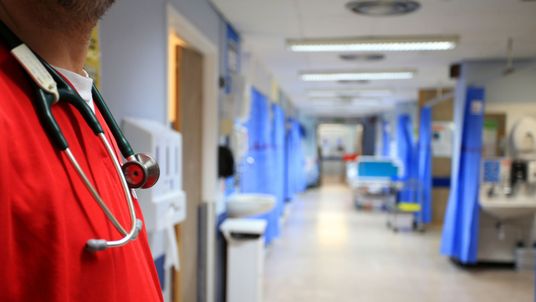Breast reductions, tonsil removals and operations to stop people snoring are among several procedures that could no longer be offered by the NHS, as part of a drive to save millions of pounds a year.
Such treatments have been identified as “risky” or “unnecessary”, and could be dealt with in a more cost-effective manner, the health service has said, including through injections, dietary changes and physiotherapy.
The proposal to cut back on the number of operations offered will be discussed by the NHS England board of directors next week, after which it will go out to consultation.
NHS England drew up a list of 17 procedures – also including grommets for glue ear and the removal of skin lesions – with input from the National Institute for Health and Care Excellence (NICE).
Of those earmarked, 13 would only be offered when certain criteria are met, with the other four restricted to patients who make a specific request.
Speaking to The Times, national medical director Professor Stephen Powis said cutting back on treatments “where risks and harms outweigh the benefits” would better allow the NHS to provide the “very best clinical care”.
“We shouldn’t, at best, inconvenience or disappoint patients by offering treatments that are not effective and, at worst, harming patients,” he told the paper.
“By reducing unnecessary or risky procedures for some patients we can get better outcomes while reducing waste and targeting resource to where it is most needed.”
NICE deputy chief executive Professor Gillian Leng said: “It has become commonplace for us to associate action with treatment. However, sometimes doing nothing, or doing less, really is the best approach.
“Treatments and procedures that carry a high risk or are associated with serious side effects should only be offered when there is compelling evidence that the benefits are worthwhile.”
Dr Graham Jackson, co-chair of NHS clinical commissioners, has promised that the public will be part of an “honest conversation” over the proposal before any action is taken, with patients and clinicians also to be consulted.
He said the “constrained funds” available to the health service mean it is important that the plans are considered.
It comes ahead of a major rally in London over the amount of government funding provided to the NHS.
Tens of thousands of people will take to the streets of the capital today in a demonstration timed to mark the upcoming 70th anniversary of the health service on Thursday.
Jeremy Corbyn will be among those to address the crowds, with the Labour leader set to criticise the approach taken by the Conservatives as “appalling”, and dismiss a boost to the NHS budget recently announced by the prime minister as not enough to keep it running at its current level.
The Department of Health and Social Care has insisted it has a “long-term plan” for the NHS, which would see it receive an extra £20.5bn per year by 2023-24.
Here are the “unnecessary and risky” treatments that could be cut.
From – SkyNews




